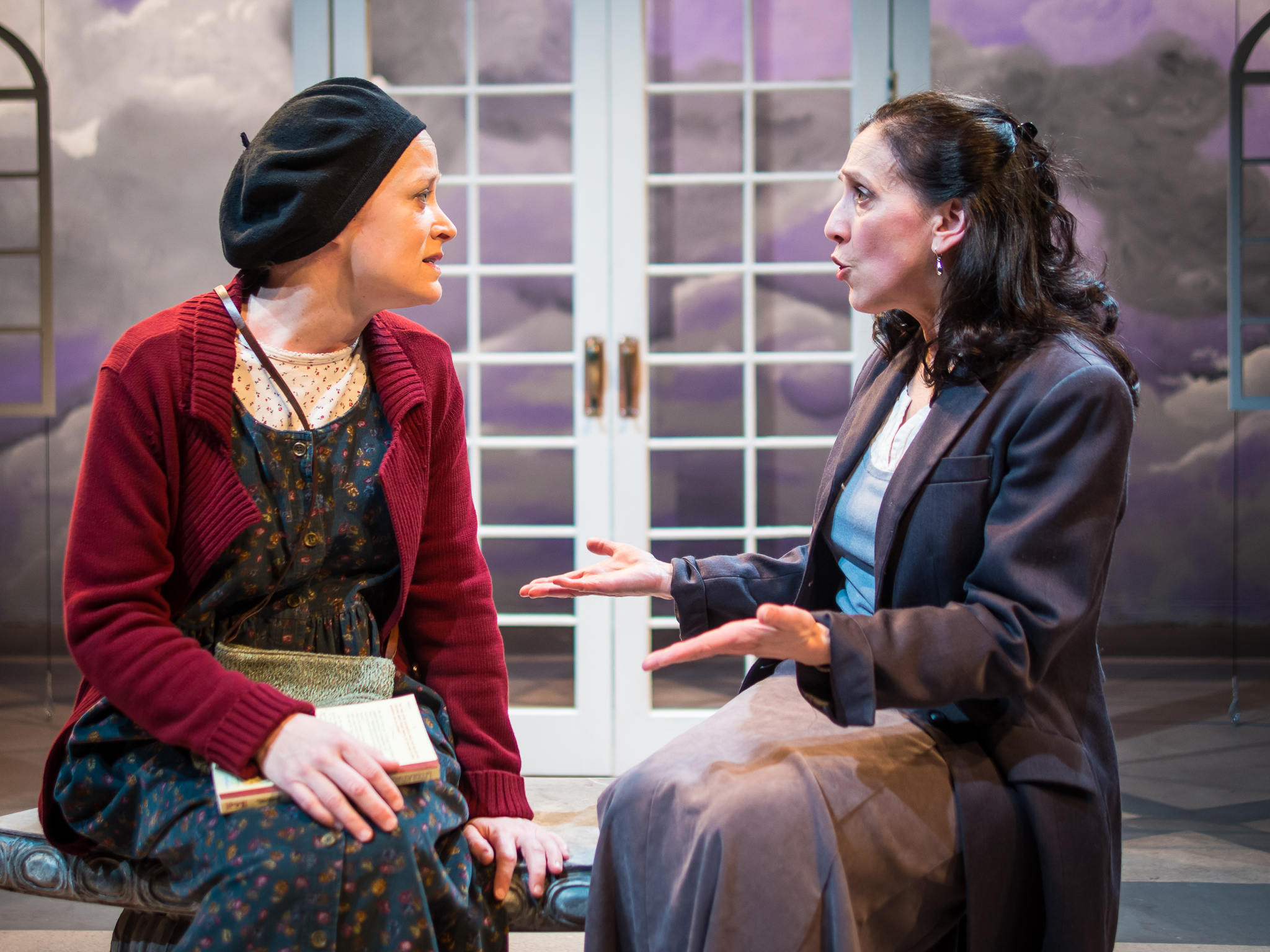Opening Nights
The Elephant Man
The Lab at Inscape, 815 Seattle Blvd. S., 800-838-3006, seattlestageright.org. $15–$20. 7:30 p.m. Thurs.–Sat. & Mon. Ends March 22.
You know the title because of David Lynch’s 1980 film; however, STAGEright’s production of Bernard Pomerance’s The Elephant Man—which premiered on Broadway in 1979—is a distinct script about the forlorn life of Joseph Merrick, usually called John.
Young doctor Frederick Treves (Brian Lange) discovers the debilitatingly disfigured Merrick (Matthew Gilbert) in a London freak show. Treves subsequently saves him by providing a permanent home at his hospital, where Merrick discovers happiness during the last years of his short life (1862–1890). After being rescued, not much happens—aside from Merrick’s expanded eminence and Dr. Treves’ apprehension about prostituting his patient for publicity.
Director Robert Bogue’s blocking expertly employs the entire small, multilevel space. His cast of 11 delivers performances ranging from brilliant to flat to indulgent. Sans prosthetics, the script demands that the lead actor portray misshapen Merrick through physicality alone, and Gilbert’s corporeal demeanor is as twisted as an Ann Coulter harangue. As the demure and compassionate Mrs. Kendal, a famous actress who befriends Merrick, Lorrie Fargo delights in the depth she delivers. Likewise, Lange vividly reveals a morally conflicted Dr. Treves.
However, some shoddy design elements divert us from the drama. Cherelle Ashby’s period costumes deserve a nod—save for the distractingly unpolished shoes of hospital administrator and fundraiser Mr. Gomm. They look like something from the Goodwill store up the street; who would trust this gentleman with capital? While Brendan Mack’s functional set makes excellent use of the small space, the construction hardly suggests Victorian solidity.
The essence of The Elephant Man is appearances, and the more stripped-down and actor-focused it is, the more mind-blowing. STAGEright adds some questionable stagecraft, though it hardly minimizes Merrick’s misery. Freak shows no longer exist in their cruel, 19th-century form. Yet watching Gilbert’s woeful performance, the thought occurs that were Merrick alive today, he’d undoubtedly have his own reality-TV show. Pomerance’s script elicits both the smug superiority of Merrick’s celebrity supporters and their surges of self-congratulation for rising above revulsion. Are our motives any less mixed when watching Lindsay Lohan today? Alyssa Dyksterhouse
Third
ArtsWest, 4711 California Ave. S.W., 938-0339, artswest.org. $45. 7:30 p.m. Wed.–Sat., 3 p.m. Sun. Ends March 22.
Liberal society tends to think of reverse-racism charges as the whine de coeur of the historically privileged. But what of that handsome white jock with the exalted last name (and Roman numeral III after it) whose family is broke and whose voracious intellect is doubted because of lefty academic prejudices ? Seems a bit farfetched in the abstract, but in Wendy Wasserstein’s 2005 dramedy, brought to life under Peggy Gannon’s gentle direction, the parable becomes an easy A, like Astronomy for Poets.
At an elite New England college, Professor Laurie Jameson (a well-cast Marty Mukhalian) preaches radical interpretations of King Lear—e.g., Regan and Goneril were the story’s heroines for overthrowing the patriarchy. Smartly played by Mark Tyler Miller, her student Woodson Bull III (he goes by “Third”) posits a well-supported alternative theory in an essay for her class. However, because he wrestles on the college team and aims to become a sports agent, she deems him incapable of having written it—a plagiarist, in other words. As she drags him before a disciplinary committee, the professor’s bitter, contemptuous spots come out in all their glory. (She dismisses Third as “practically a walking red state.”) This isn’t a Mamet-brutal expose, but more a witty midlife reckoning for an ego-blinded pedant. Burton Yuen’s backdrop of renaissance-style clouds, framed in floating window frames, delicately suggests legacy, aspiration, epiphany, and mortality.
Strategically drawn supporting characters illuminate Prof. Jameson’s deficits like Scrooge’s ghosts: a colleague battling cancer (the marvelously earthbound Kate Witt), Jameson’s Alzheimer’s-afflicted dad (Bill Higham), and her college-age, not-radical-enough disappointment of a daughter (Kacey Shiflet). In her last play before her 2006 death, Wasserstein’s scenes range from conventional confrontations to more fanciful flights, like the red-light-drenched hot flash Jameson endures. Snippets of news and George W. Bush speeches allude to the Iraq War; it’s a clunky way of comparing W’s certainty about WMDs to Jameson’s about plagiarism.
This isn’t so rich or resonant a work as The Heidi Chronicles, but Mukhalian gives Jameson some depth. She’s pompous, clumsy, fragile, lost, and ridiculous (even dancing to PBS fund-drive concerts). Those qualities yield a touching (if slight) awakening of human conscience in the ivory tower—possibly in the audience, too. Margaret Friedman
E
stage@seattleweekly.com




